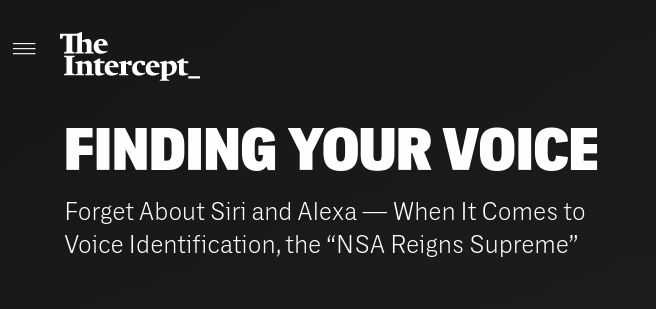A recent Intercept post once more shows great insight into history and state of NSA technologies. This time it’s about voice recognition and recognizing “who’s speaking” within very little time. Things have changed since the cold war, but I was not aware of secret services creating so-called voiceprints of all of us – including and focusing on non-US citizens. There’s an NSA program called Voice RT (link), but also China and Europe are involved:
In November, a major international speaker recognition effort funded by the European Union passed its final test, according to an Interpol press release. More than 100 intelligence analysts, researchers, and law enforcement agents from over 50 countries — among them, Interpol, the U.K.’s Metropolitan Police Service, and the Portuguese Polícia Judiciária — attended the demonstration, in which researchers proved that their program could identify “unknown speakers talking in different languages … through social media or lawfully intercepted audios.”

NSA documents reviewed by The Intercept outline the contours of a similarly expansive system — one that, in the years following 9/11, grew to allow “language analysts to sift through hundreds of hours of voice cuts in a matter of seconds and selects items of potential interest based on keywords or speaker voice recognition.”
Last week the US senate agreed on extending these surveillance measures, and the NSA’s goal is clear, not only since the 2010 conference where its directors clarified:
“It is all about locating, tracking, and maintaining continuity on individuals across space and time. It’s not just the traditional communications we’re after — It’s taking a ‘full arsenal’ approach.”